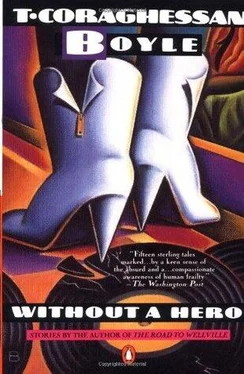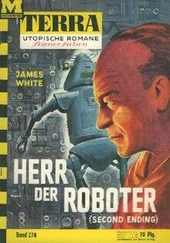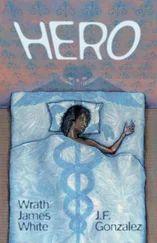T. Boyle - Without a Hero
Здесь есть возможность читать онлайн «T. Boyle - Without a Hero» весь текст электронной книги совершенно бесплатно (целиком полную версию без сокращений). В некоторых случаях можно слушать аудио, скачать через торрент в формате fb2 и присутствует краткое содержание. Год выпуска: 1995, Издательство: Penguin Books, Жанр: Современная проза, на английском языке. Описание произведения, (предисловие) а так же отзывы посетителей доступны на портале библиотеки ЛибКат.
- Название:Without a Hero
- Автор:
- Издательство:Penguin Books
- Жанр:
- Год:1995
- ISBN:нет данных
- Рейтинг книги:3 / 5. Голосов: 1
-
Избранное:Добавить в избранное
- Отзывы:
-
Ваша оценка:
- 60
- 1
- 2
- 3
- 4
- 5
Without a Hero: краткое содержание, описание и аннотация
Предлагаем к чтению аннотацию, описание, краткое содержание или предисловие (зависит от того, что написал сам автор книги «Without a Hero»). Если вы не нашли необходимую информацию о книге — напишите в комментариях, мы постараемся отыскать её.
Greasy Lake
People
Without a Hero
The Philadelphia Inquirer
Without a Hero — читать онлайн бесплатно полную книгу (весь текст) целиком
Ниже представлен текст книги, разбитый по страницам. Система сохранения места последней прочитанной страницы, позволяет с удобством читать онлайн бесплатно книгу «Without a Hero», без необходимости каждый раз заново искать на чём Вы остановились. Поставьте закладку, и сможете в любой момент перейти на страницу, на которой закончили чтение.
Интервал:
Закладка:
I was in shock. I looked at Bill, Allen, Neal, and they were as stunned as I was. And poor Ricky — all she had on was Jack’s pea coat and I could see her tiny bare perfect-toed Beat chick feet freezing to the ground like twin ice sculptures. I reached up to adjust my beret and realized it wasn’t there, and it was like I’d had the wind knocked out of me. “Jack!” I cried out suddenly, and my creaking adolescent voice turned it into a forlorn bleat. “Jack!” I cried, “Jack!” but the night closed round us and there was no answer.
What happened from there is a long story. But to make it short, I took Mémère’s advice and went home to my mother, and by the time I got there Ricky had already missed her period. My mother didn’t like it but the two of us moved into my boyhood room with the lame college pennants and dinosaur posters and whatnot on the walls for about a month, which is all we could stand, and then Ricky took her gone gorgeous Beat Madonna-of-the-streets little body off to an ultra-Beat one-room pad on the other end of town and I got a job as a brakeman on the Southern Pacific and she let me crash with her and that was that. We smoked tea and burned candles and incense and drank jug wine and made it till we damn near rubbed the skin off each other. The first four boys we named Jack, Neal, Allen and Bill, though we never saw any of their namesakes again except Allen, at one of his poetry readings, but he made like he didn’t know us. The first of the girls we named Gabrielle, for Jack’s mother, and after that we seemed to kind of just lose track and name them for the month they were born, regardless of sex, and we wound up with two Junes — June the Male and June the Female — but it was no big thing.
Yeah, I was Beat, Beater than any of them — or just as Beat, anyway. Looking back on it now, though, I mean after all these years and what with the mortgage payments and Ricky’s detox and the kids with their college tuition and the way the woodworking shop over the garage burned down and how stinking close-fisted petit-bourgeois before-the-revolution pig-headed cheap the railroad disability is, I wonder now if I’m not so much Beat anymore as just plain beat. But then, I couldn’t even begin to find the words to describe it to you.
THE FOG MAN
HE CAME TWICE A WEEK, rattling through the development in an army-surplus jeep, laying down a roiling smoke screen that melted the trees into oblivion, flattened hills and swallowed up houses, erased Fords, Chevies and Studebakers as if they were as insubstantial as the air itself, and otherwise transformed the world to our satisfaction. Shrubs became dinosaurs, lampposts giraffes, the blacktop of the streets seethed like the surface of the swamp primeval. Our fathers stood there on their emerald lawns, hoses dripping, and they waved languidly or turned their backs to shoot a sparkling burst at the flower beds or forsythias. We took to our bikes, supercharged with the excitement of it, and we ran just behind him, the fog man, wheeling in and out of the tight billowing clouds like fighter pilots slashing across the sky or Grand Prix racers nosing in for the lead on that final excruciating lap. He gave us nothing except those moments of transfiguration, but we chased him as single-mindedly as we chased the ice-cream man in his tinkling white truck full of Drumsticks and Eskimo Pies, chased him till he’d completed his tour of the six connecting streets of the development — up one side and down the other — and lurched across the highway, trailing smoke, for the next.
And then the smoke settled, clinging to the dewy wet grass, the odor of smoldering briquettes fought over the top of the sweet narcotic smell of it, and we were gone, disseminated, slammed behind identical screen doors, in our identical houses, for the comfort and magic of the TV. My father was there, always there, propped up in his recliner, one hand over his eyes to mask an imaginary glare, the other clutched round his sweating drink. My mother was there too, legs tucked under her on the couch, the newspaper spread in her lap, her drink on the cluttered table beside her.
“The fog man was just here,” I would announce. I didn’t expect a response, really — it was just something to say. The show on TV was about a smiling family. All the shows were about smiling families. My mother would nod.
One night I appended a question. “He’s spraying for bugs, right?” This much I knew, this much had been explained to me, but I wanted confirmation, affirmation, I wanted reason and meaning to illuminate my life.
My father said nothing. My mother looked up. “Mosquitoes.”
“Yeah, that’s what I thought — but how come there’s so many of them then? They bit right through my shirt on the front porch.”
My mother tapped at her cigarette, took a sip of her drink. “You can’t get them all,” she said.
It was at about this time that the local power company opened the world’s first atomic power plant at Indian Point. Ten years earlier nuclear fission had been an instrument of war and destruction; now it was safe, manageable; now it would warm our houses and light our lights and power our hi-fis and toasters and dishwashers. The electric company took pains to ensure that the community saw it that way. It was called public relations.
I didn’t know the term then. I was eleven years old, in my first week of my last year of elementary school, and on my way to the power plant in a school bus crammed to the yawning windows with my excitable classmates. This was known as a field trip. The previous year we’d been to a farm in Brewster and the Museum of Natural History in New York. We were starting early this year, but it was all due to the fact of this astonishing new technological force set down amongst us, this revolution in the production of electricity and the streamlining of our lives. We didn’t know what to expect.
The bus rumbled and belched fumes. I sat on the hard cracked leatherette seat beside Casper Mendelson and watched the great gray concrete dome rise up out of the clutch of the trees, dominating the point and the placid broad fish-stinking river beyond it. It was impressive, this huge structure inside of which the titanic forces of the universe were pared down to size. Casper said that it could blow up, like the bomb they’d dropped on the Japanese, and that it would take all of Peterskill and Westchester with it. The river would turn to steam and there’d be nothing left but a crater the size of the Grand Canyon and we’d all be melted in our beds. I gaped out the window at the thing, awestruck, the big dome keeping a lid on all that seething complexity, and I was impressed, but I couldn’t help thinking of the point’s previous incarnation as an amusement park, a place of strung lights, cotton candy and carousels. Now there was this gray dome.
They led us into a little brightly lit building full of colorful exhibits, where we handled things that were meant to be handled, scuffed the gleaming linoleum floors and watched an animated short in which Johnny Atom splits himself in two and saves the world by creating electricity. The whole thing was pretty dull, aside from the dome itself and what Casper had said about it, and within the hour my classmates were filling the place with the roar of a stampede, breaking the handles off things, sobbing, skipping, playing tag and wondering seriously about lunch — which, as it turned out, we were to have back at school, in the cafeteria, after which we were expected to return to our classrooms and discuss what we’d learned on our field trip.
I remember the day for the impression that imposing gray dome made on me, but also because it was the first chance I got to have a look at Maki Duryea, the new girl who’d been assigned to the other sixth-grade section. Maki was black — or not simply black, but black and Oriental both. Her father had been stationed in Osaka during the occupation; her mother was Japanese. I watched her surreptitiously that morning as I sat in the rear of the bus with Casper. She was somewhere in the middle, sitting beside Donna Siprelle, a girl I’d known all my life. All I could make out was the back of her head, but that was enough, that alone was a revelation. Her hair was an absolute, unalloyed, interstellar black, and it disappeared behind the jutting high ridge of the seat back as if it might go on forever. It had hung iron straight when we first climbed aboard the bus that morning, but on the way back it was transformed, a leaping electric snarl that engulfed the seat and eclipsed the neat little ball of yellow curls that clung to the back of Donna Siprelle’s head. “Maki Duryea, Maki Duryea,” Casper began to chant, though no one could hear him but me in the pandemonium of that preprandial school bus. Annoyed, I poked him with a savage elbow but he kept it up, louder now, to spite me.
Читать дальшеИнтервал:
Закладка:
Похожие книги на «Without a Hero»
Представляем Вашему вниманию похожие книги на «Without a Hero» списком для выбора. Мы отобрали схожую по названию и смыслу литературу в надежде предоставить читателям больше вариантов отыскать новые, интересные, ещё непрочитанные произведения.
Обсуждение, отзывы о книге «Without a Hero» и просто собственные мнения читателей. Оставьте ваши комментарии, напишите, что Вы думаете о произведении, его смысле или главных героях. Укажите что конкретно понравилось, а что нет, и почему Вы так считаете.











